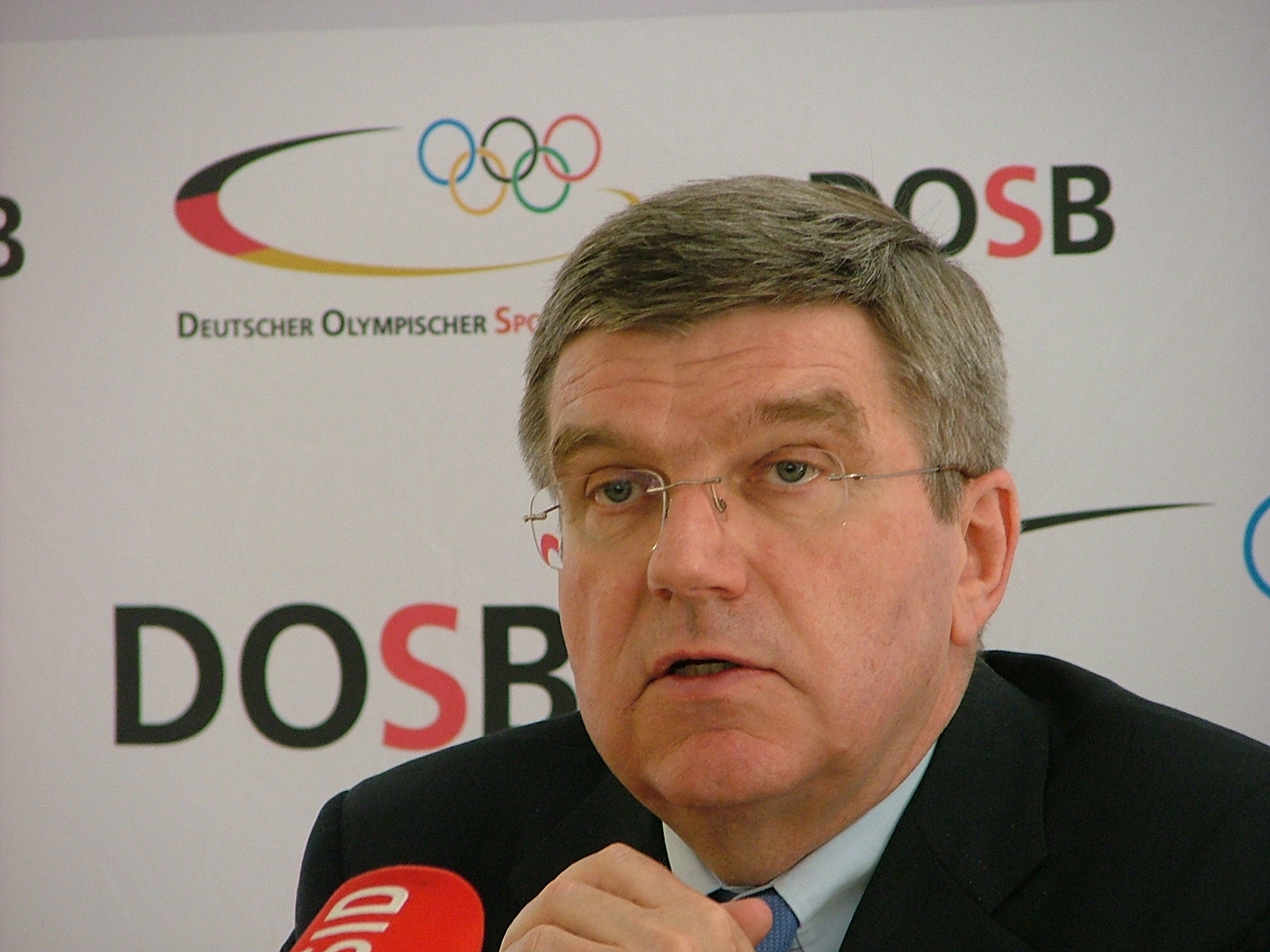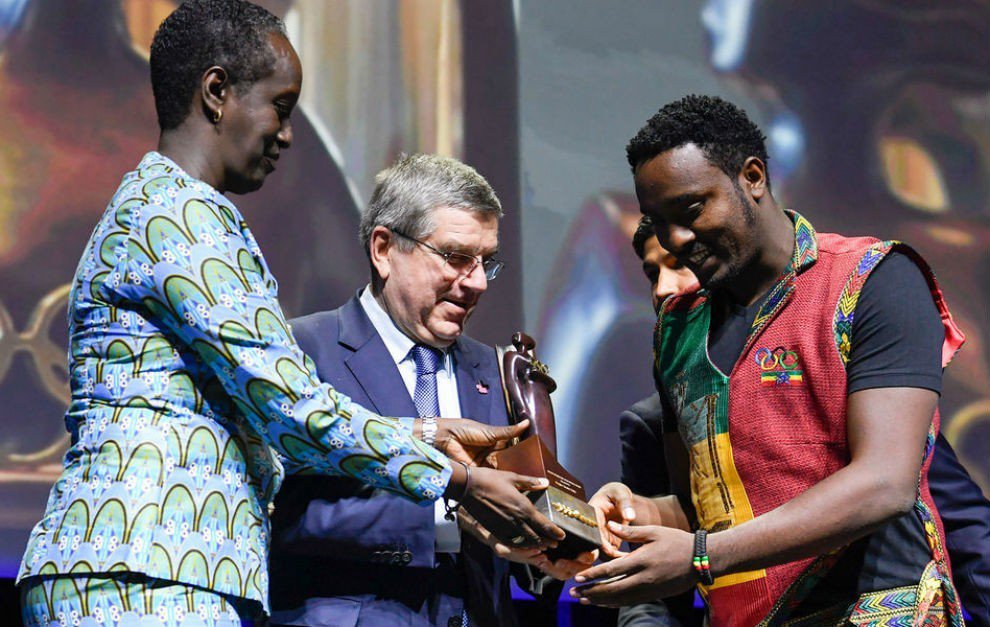
If last week’s United States Presidential election taught us anything it is that, like with Brexit earlier in the year, pollsters, the media and much of the liberal elite had abjectly failed to spot the cultural phenomenon that propelled Donald Trump to the White House.
Surrounding yourselves with people hailing from similar backgrounds and like-minded views, we learned, does not always give you a balanced and objective – or accurate – view of all opinions.
Sport should also pay heed to a similar lesson.
This has been a tumultuous year consisting of, among other things, a state-sponsored doping crisis and multiple corruption scandals followed by a near disaster narrowly avoided at Rio 2016.
But it has been business as normal in the lobbies and corridors of the Olympic world, and, at least on the face of it, you would be forgiven for thinking that little has changed.
The circus started in Lausanne last week with the largest global gathering of sporting officials since Rio 2016. First it was a series of International Olympic Committee (IOC) Commission meetings at the luxurious Palace hotel before we descended a mile down the hill for the International Federations Forum at the Royal Savoy, which was not exactly shabby.
We all then flew east to Doha for the Association of National Olympic Committees (ANOC) General Assembly starting here tomorrow.
I am yet to fully grasp the point of the Commission meetings. It does not take a mathematician to calculate that flying out around 100 members of the various bodies for a few all expenses-paid days staying at the Palace does not come cheap – even if, as I have now been told, they do not get specific per diems.
Some issues of substance were discussed, surely? At the Athletes’ Commission meeting, yes, it appears they put into motion a valuable reform system by which the voice of sportspeople should be improved over coming years.
Yet from what we could tell, most of the others were effectively a talking shop in which a glut of PowerPoint presentations failed to disguise a lack of much that was substantial.
The Communications Commission chaired by Camiel Eulings provides one good example. Despite a year in which the IOC’s media coverage in much of the world has been nothing short of atrocious, we were told that the meetings of the panel invariably consists of discussions no more profound than over what pictures of pets they should post on Facebook and Twitter.

A Women in Sport awards ceremony was also held during the week, while the IOC shored up their support among the National Olympic Committees ahead of the ANOC meeting by promising a 16 percent increase in Olympic Solidarity. They are also vowing to continue their Refugees Olympic Team following the success seen at Rio 2016.
But, of course, the truly important meetings were not mentioned in the press releases.
These included a gathering of the IOC Disciplinary Commission on Russian doping chaired by French judge Guy Canivet at which domestic investigation head Vitaly Smirnov and Russian Olympic Committee President Alexander Zhukov were among those questioned.
Zhukov also appeared at a separate meeting of “Olympic representatives of the World Anti-Doping Agency (WADA)” to discuss potential reforms to the global anti-doping system.
An IOC Executive Board meeting was held the next day at which, we were told, only the Olympic Solidarity budget changes were discussed.
Two days later, however, we received a note circulated to the IOC members in this age of transparency, which revealed how they had actually had an extensive agenda at which the ongoing case of “temporarily self-suspended” sporting bigwig Patrick Hickey was discussed along with Russian doping.
The theme which emerged from this was that the IOC are worried about the expected outcomes of next month’s McLaren Report into alleged Russian doping manipulations at Sochi 2014 and so many other events. They are now prepared to only offer WADA support on the “condition” McLaren provides “active cooperation.” In IOC twaddle, “active cooperation” appears likely to mean sharing every titbit of information he has uncovered.
Doping was on the agenda at the IF Forum and we are told was the subject of a fascinating discussion at which speakers included Martial Saugy – the mysterious former director of the Lausanne Laboratory who was accredited to the “Ministry of Sport of the Russian Federation” at Sochi 2014.
Unfortunately, another highlight of our age of transparency involved media being banned. We were reduced to hanging around in the lobby and observing a far more harmonious-seeming event than last year.
Dissent within SportAccord appears to have been quashed, for the time being at least, under new President Patrick Baumann, the Swiss IOC member and secretary general of the International Basketball Federation. The organization remains a pale shadow of its former self, but is beginning an expansion by launching a revamped World Combat Games in 2018 for which Houston has emerged as one contender.
Interestingly, Baumann is not seen as particularly close to IOC head Thomas Bach due to how he is thought to have backed rival candidate Richard Carrion in the race for the Presidency in 2013. But the IOC, after seeing off the challenge of former SportAccord head Marius Vizer last year, are thought to be keeping the body on a tight leash in order to ensure it does not recover too much of its former confidence.
Bach is thought to be particularly close to the Association of Summer Olympic International Federations (ASOIF) led by Italian ally Francesco Ricci Bitti. It will be interesting to see whether his relations prove as good with Association of Winter Olympic International Federations counterpart Gian-Franco Kasper, also the President of the International Ski Federation. Cooperation there will be key when formulating responses to the McLaren Report if the revelations surrounding Sochi 2014 are as damning as we expect them to be.
The week felt very much like the calm before the storm. All will continue to be well this week here in Doha, we expect, as focus turns to the first chance for Budapest, Los Angeles and Paris to conduct international bid presentations in the 2024 Olympic and Paralympic race.
But next week we have the WADA Foundation Board meeting in Glasgow at which the IOC, who may have organized things for Sir Craig Reedie to be re-elected President, will surely find it far more difficult to influence in other ways than with SportAccord.
The open nature of the meeting, with media free to attend, also juxtaposes starkly with approaches to communications strategies elsewhere in the Olympic Movement. And McLaren’s impending report should then ensure the year ends on anything but a high note.
All quiet on the Olympic front for now then.
But, while it appears business as usual in the Olympic bubble, things are unlikely to remain quiet for long…
By Nick Butler
Republished with permission from insidethegames.biz.